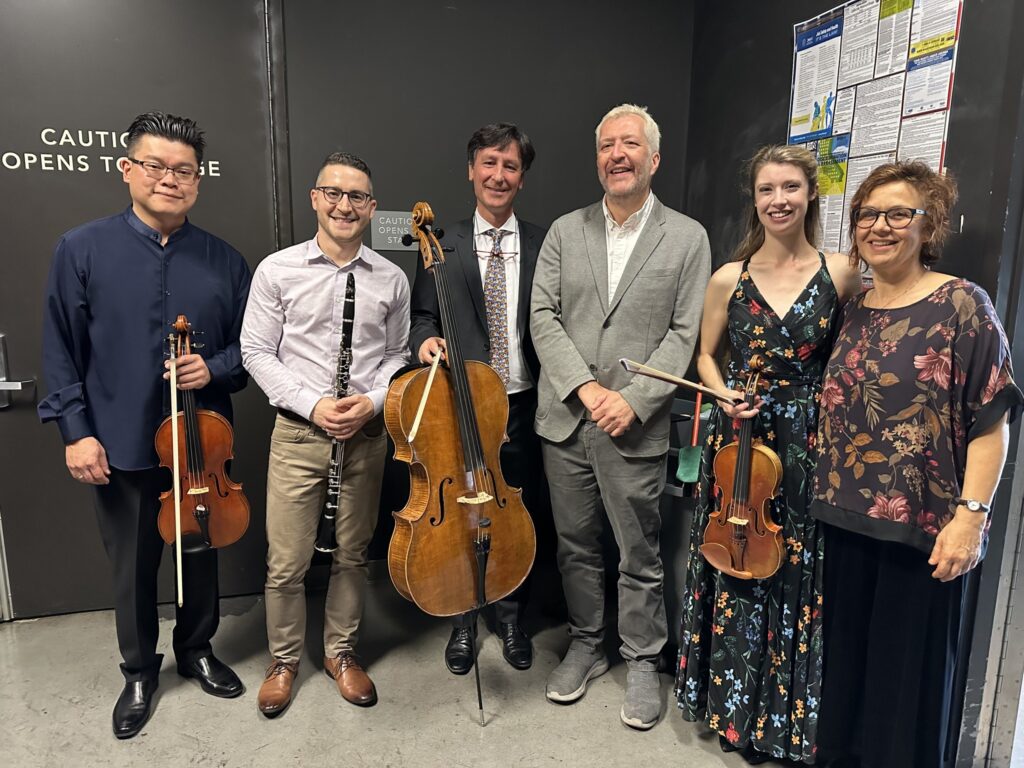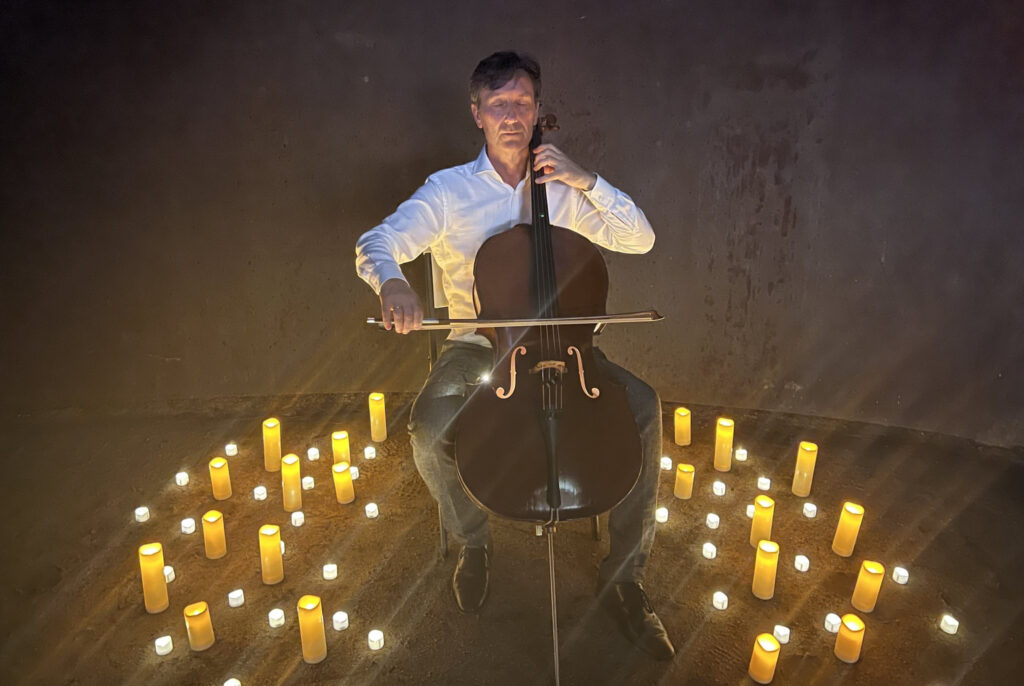Virtuoso cellist taught for twenty years at The UCLA Herb Alpert School of Music
On Sunday, February 4, the UCLA community learned of the sudden and unexpected loss of Antonio Lysy (1963-2024). Known the world over for his virtuosic performances and astounding creativity, Lysy was a beloved colleague and teacher, mentor and friend. Lysy’s sudden passing, barely two months after his retirement, deeply affected our community. His students heard the news on the day of the UCLA Philharmonia’s annual All-Star concert. From the podium, conductor Neal Stulberg (the director of orchestral studies) dedicated that evening’s concert to Antonio. Lysy’s cello students reported the difficulty of playing even a single note without breaking down. In memory of their teacher, they put their emotion into the music.
More memorials would emerge in the weeks that followed. The UCLA string chamber group “Camarades” dedicated its winter Vivaldi concert to Lysy. Movses Pogossian, professor of violin performance, added a memorial to his March concert celebrating the release of the 4 CD-disk set of Armenian music, Serenade with a Dandelion.
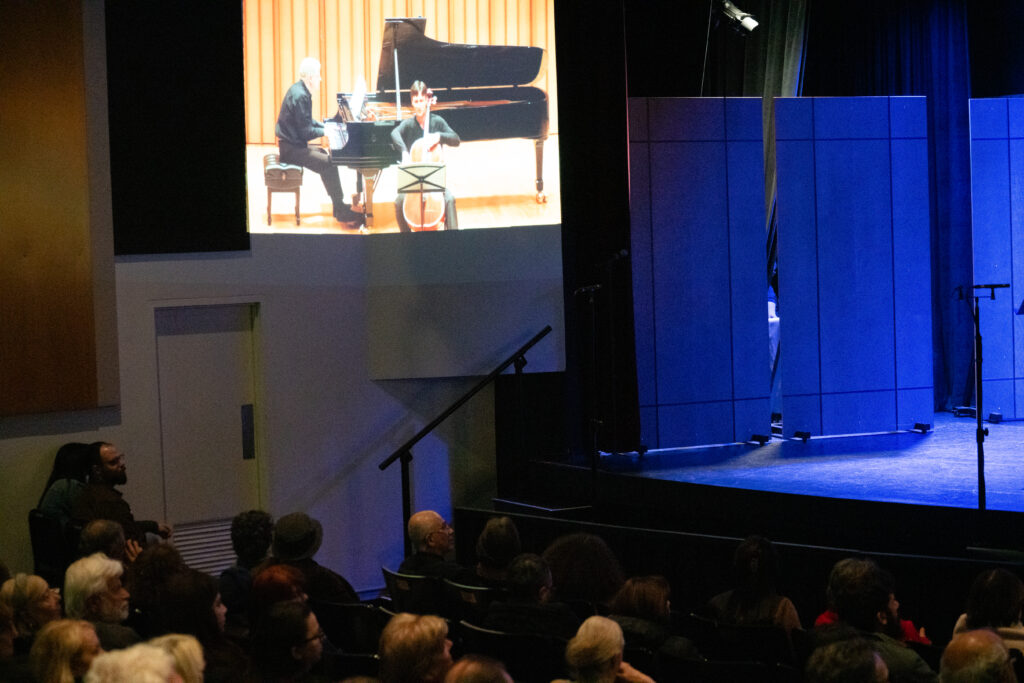
“Antonio was an inspirational presence in my life,” said Pogossian. “He was one of the first people I met when I moved to Los Angeles in 2004. I went to a concert after I arrived, and Antonio was performing with the concertmaster of the LA Phil. I loved what I heard. He was a beautiful and sensitive performer.”
It was the beginning of a long friendship. Lysy was on the committee that hired Pogossian as a UCLA violin professor in 2007, and the two collaborated frequently. “He was an exceptional chamber player in that he knew when to lead, he knew when to follow. He was always very caring and a pleasure to play with. He was a stickler, too. Antonio was exacting and even a perfectionist. Chamber groups always sounded better with him in them.”
Lysy’s performance career spanned multiple continents. As a soloist, he performed with London’s Royal Philharmonic, the Toronto Symphony Orchestra, and the Camerata Strumentale di Prato (to name but a few). He was featured on CBC Radio and BBC Radio, and his recordings ranged from Bach to Fauré to Shostakovich.
“His cello playing was exquisite,” said James Bass, chair of the music department and professor of voice performance, “and his musical knowledge was breathtaking. I remember brainstorming with him once about a possible concert that would combine cello and voices. I named a new piece by a Canadian composer, and he immediately rattled off an entire list of his works. His knowledge of the choral repertoire was amazing.”
Lysy’s artistc palate was lush and full, and he evinced the kind of broad-mindedness that refused to be pigeonholed as a specialist in cello or string repertoire. His colleagues frequently recalled his genuine curiosity. “He was always asking what you were up to, what project you were working on.” said Bass. “That’s how conversations always began with him. He was the eternal student.”
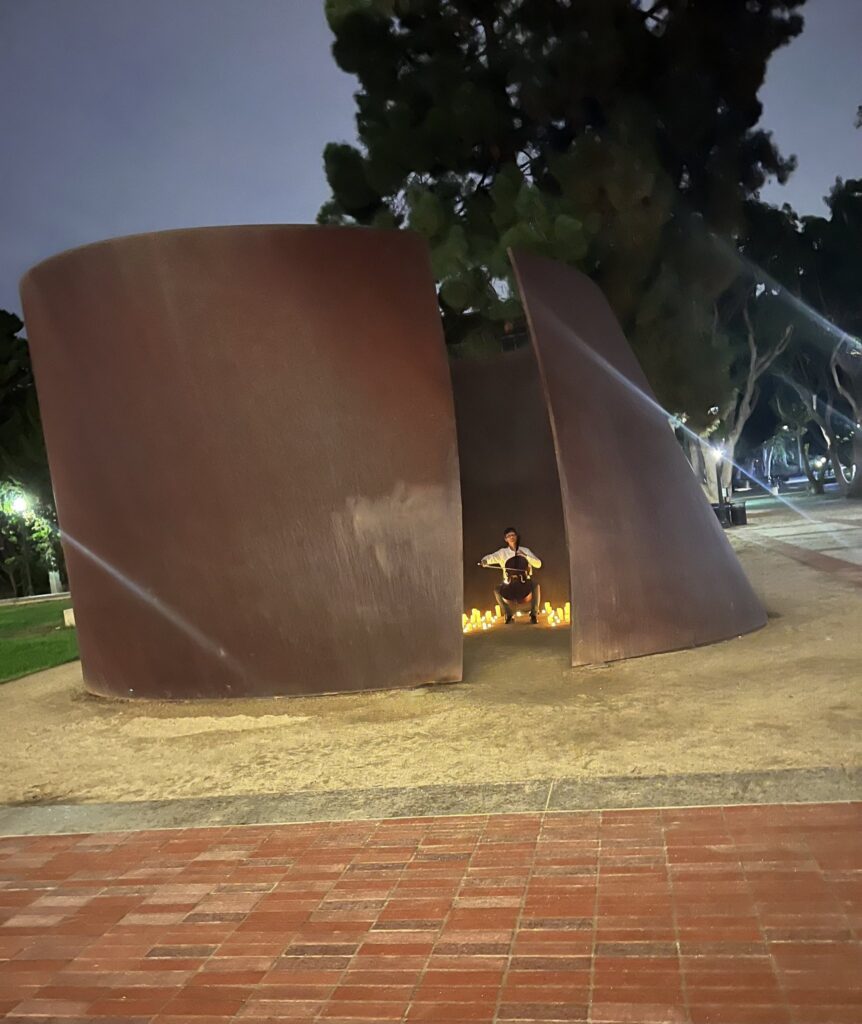
Bach in the Serra
On September 23, 2022, Antonio Lysy performed Bach’s six suites for solo cello inside Richard Serra’s T.E.U.C.L.A. (Torqued Ellipse) in the Franklin D. Murphy Sculpture Garden. Fia Darroch, Antonio’s daughter, wrote this essay about her father’s artistic vision in combining baroque music with postmodern scultpture.
Inna Faliks, professor of piano performance, recalled how she first met Lysy when she arrived in 2013. “We performed and recorded the Chopin and Rachmaninoff sonatas for cello and piano,” said Faliks. “He was such an elegant and sensitive musician. So musical. And such a generous and warm colleague. We became instant friends, lifelong friends. And that warmth and sensitivity really came through in his playing.”
Faliks recalled Lysy’s more playful side, too. “We went on a faculty trip to China together. Antonio really had an adventurous streak. We got out and explored, we went to strange places. It was so joyful. He really was so youthful, and he could be silly and goofy.”
Lysy’s generosity and warmth (and goofiness) was matched by his passion, both for his musical projects and also for his students. Colleagues recalled how fierce he was in defending the interests of students and in looking out for their well-being. Pogossian remembered how Lysy would bring up the “non-glamorous” topics in meetings: “Practice spaces, scheduling—he was always advocating for his students where it mattered to them.”
“He was dogged in his pursuit of making sure the students had what they needed,” said James Bass. “And he brought his liberality into his teaching. He wanted his students to be well-rounded, as well educated as they could be. It was indicative of what we want to be in a School of Music.”
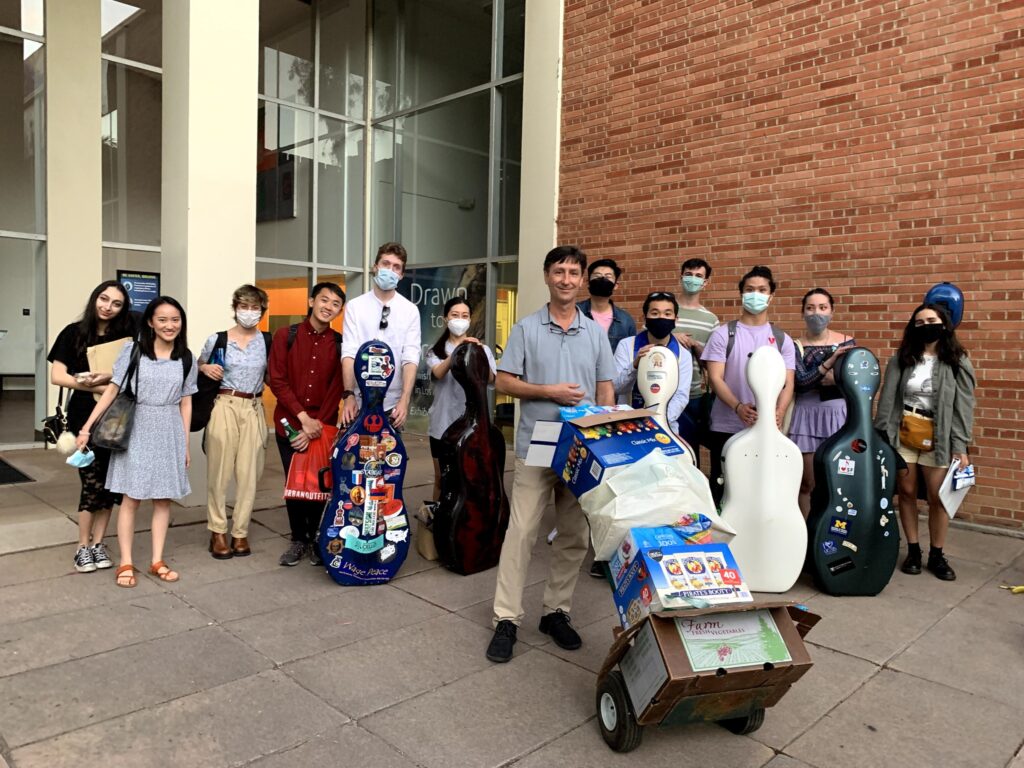
Lysy opened up worlds. His former student, Euan Shields (cello performance, 2021) was a formidable cellist. Shields was also interested in conducting, which he shared with his teacher. Lysy immediately introduced him to Neal Stulberg, who helped him find opportunities to learn conducting as a cello student.
It paid off. Shields won the Siemens Hallé International Conductors Competition in 2023 and is now is now assistant conductor for Manchester’s Hallé Orchestra. “I recently conducted a concert, and Antonio messaged me ‘Wonderful, Euan, toi-toi!,” said Shields. “He never stopped supporting me, even after I graduated UCLA.”
Lysy’s advocacy and pedagogy was always rooted in deep personal connections. Inna Faliks recalled how Lysy always made his students feel valued and part of their studio. The dedication of his students was strongly evidenced in his retirement concert, the Cellobration on November 10, 2023, in which former students flew from great distances to participate in a cello choir of forty participants.
“That giant wave of love that poured out at his retirement concert,” said Movses Pogossian. “That speaks for itself. That was who he was as a teacher.”
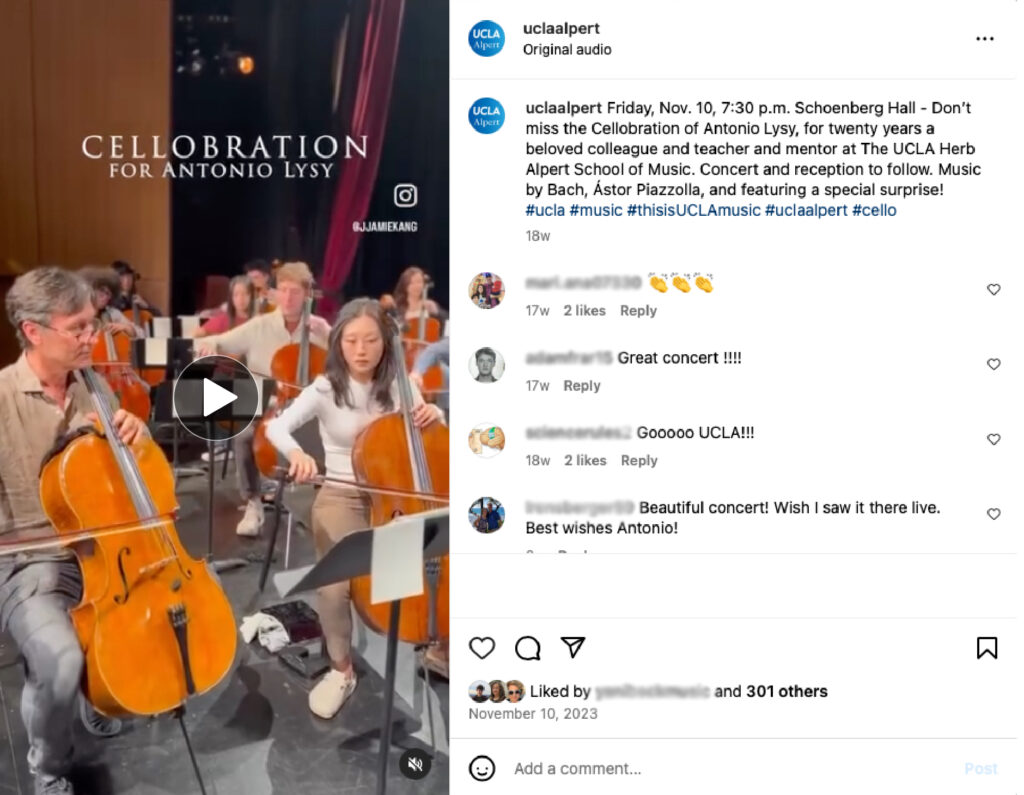
Kaya Ralls, a third-year cello performance major, recalled how exacting Lysy could be as a teacher. He was a stickler for technique and no one was spared his demanding ear.
But he also danced during lessons.
“I remember working on the Bach cello suites, and he wanted me to play with more energy. So he got up during the lesson and danced while I played,” said Ralls. “He always emphasized to students that music was about mind, body and soul. He wanted us to feel the energy of the piece.”
Lysy played with the same energy he imparted to his students. His style was described by colleagues and students as warm and expressive, musically sensitive and deeply connected to his audience. An extroverted performer, Lysy punctuated his melodic lines with his gestures, which captured the spirit and energy of the piece he was performing.
“Antonio was an elegant man, and that refinement and profound appreciation of aesthetic beauty was beautifully reflected in his music,” said Eileen Strempel, inaugural dean of the School of Music. This is a sentiment universally echoed—Lysy’s elegance of character, generosity of spirit, and empathy. They were all characteristics that suffused his teaching and his art.
“He danced the music he was playing,” said Ralls.
